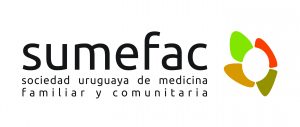Event description, objectives and target audience
 Quaternary prevention (P4) consists of avoiding unnecessary medical interventions and overmedicalization and proposing ethically acceptable actions. In our symposium, we will focus on P4 in primary health care (PHC). The concept of P4 originated in European PHC, was adopted by WONCA (World Organization of National Colleges, Academies and Academic Associations of General Practitioners/Family Physicians) in 2003, and has slowly been expanding more in the global south, with Brazil having a prominent scientific production on the subject. The practice of P4 can improve the quality of care, reduce iatrogenesis, reduce inequalities, and impact healthcare costs by rationalizing preventive, diagnostic, and therapeutic actions (screenings, preventive treatments, complementary tests, and other interventions), often performed in excess and without sufficient evidence on the efficacy/effectiveness and safety (harm) of interventions. P4 requires a critical attitude for balanced and ethical decisions in care. Building critical interpretation, in addition to debating the available evidence, is essential for safer, more effective, and economical care, especially due to the spread of low-value diagnostic and therapeutic practices.
Quaternary prevention (P4) consists of avoiding unnecessary medical interventions and overmedicalization and proposing ethically acceptable actions. In our symposium, we will focus on P4 in primary health care (PHC). The concept of P4 originated in European PHC, was adopted by WONCA (World Organization of National Colleges, Academies and Academic Associations of General Practitioners/Family Physicians) in 2003, and has slowly been expanding more in the global south, with Brazil having a prominent scientific production on the subject. The practice of P4 can improve the quality of care, reduce iatrogenesis, reduce inequalities, and impact healthcare costs by rationalizing preventive, diagnostic, and therapeutic actions (screenings, preventive treatments, complementary tests, and other interventions), often performed in excess and without sufficient evidence on the efficacy/effectiveness and safety (harm) of interventions. P4 requires a critical attitude for balanced and ethical decisions in care. Building critical interpretation, in addition to debating the available evidence, is essential for safer, more effective, and economical care, especially due to the spread of low-value diagnostic and therapeutic practices.
Main objective: to share knowledge and research, discuss and promote strategies for the conceptual and practical development of quaternary prevention (P4), focusing on primary health care, aiming at a balanced approach and more ethical and effective care.
Specific objectives:
– Disseminate and discuss new theoretical-conceptual developments in quaternary prevention.
– Spread and promote the concept of quaternary prevention and its applications.
– Share innovative experiences on practical applications and theoretical and practical teaching/training.
Target audience: The symposium is dedicated to health professionals, residents, students, faculty, and researchers of primary health care (PHC) interested or involved in the development and application of quaternary prevention (P4).
We have the support of:










